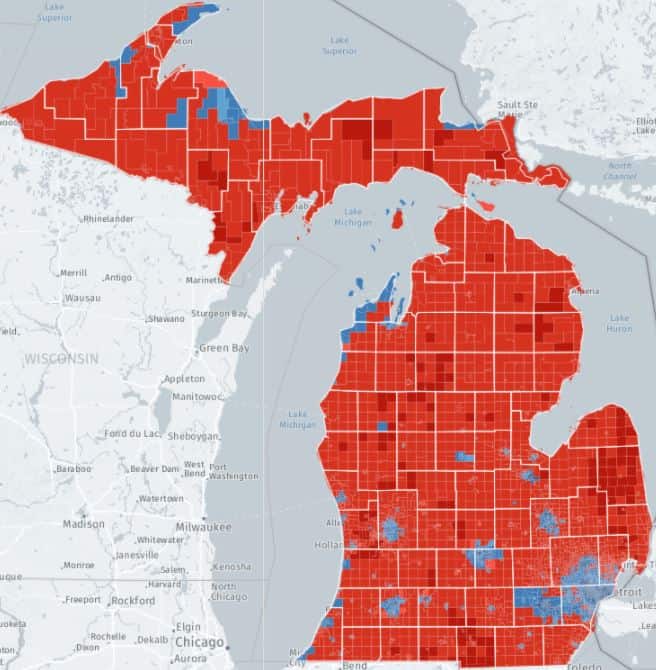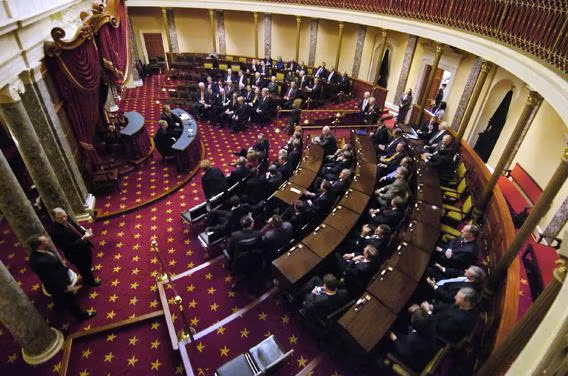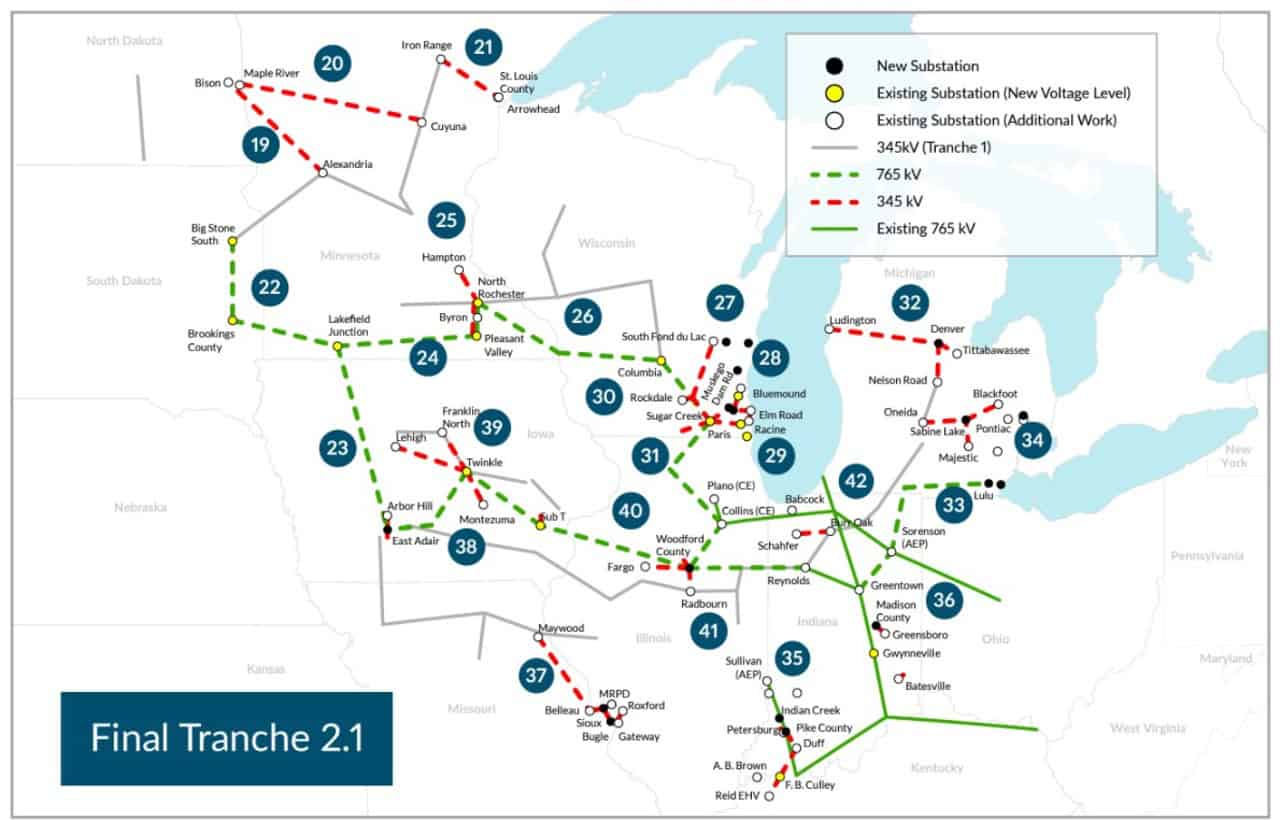LANSING – The U.S. 6th Circuit Court of Appeals on Thursday refused to hold a hearing en banc on a stay of Michigan’s straight-ticket voting ban, which raises the possibility the issue may not be resolved until after the November election.
A dissent in the split-decision on whether to hear the appeal indicated that without having heard and ruled on the appeal, there is technically no issue for Attorney General Bill Schuette and Secretary of State Ruth Johnson to appeal to the U.S. Supreme Court. And the U.S. Supreme Court would be the only avenue of appeal left to the state.
That could mean that in the November election, Michigan voters will again be able to vote for an entire party’s slate of candidates by marking a box at the top of the ballot, and that any further resolution on the question of whether Michigan’s newly enacted prohibition of straight-party voting violates the constitutional right of minority voters.
State elections officials have said September 9 is a “drop-dead” date by which Michigan’s ballot must be completed to allow for printing, distribution and the start of mailing to individuals voting absentee (particularly military and state residents living overseas).
A spokesperson for Schuette, shortly after the order rejecting the hearing appeal was released, said it was being reviewed.
By late Thursday afternoon, a spokesperson for Johnson also said the decision was still being reviewed.
Schuette had asked the entire 6th circuit for a decision on a hearing no later than August 30 in order to allow for a further appeal if needed.
The motion for an en banc hearing was distributed to all the judges in the 6th circuit – most of whom were appointed by Republican presidents – and it failed to get a majority of those judges saying they would hear the appeal.
“Therefore, the petition for the initial hearing en banc is denied,” the order read in Michigan State A. Phillip Randolph Institute v. Johnson (USCOA docket No. 16-2071/2115).
Walker City Clerk Sarah Bydalek, president of the Michigan Association of Municipal Clerks, said the state should not make another effort at an appeal, allow straight-ticket voting to run for the November election and then resolve the issue afterwards.
“They should just leave it alone, move forward, let us print our ballots, do this big general election, this presidential election and then deal with it later,” she said.
An effort to continue the fight would show state officials “are not thinking about the average voter who has not come in with a list of who they are going to vote for. People don’t want to take 15 or 20 minutes to vote, let alone waiting the 30 minutes in line,” Bydalek said.
But House Speaker Kevin Cotter (R-Mount Pleasant) blasted the decision, saying “Only Michigan is forced to keep a tool of party-machine politics” compared to the other states. Most states have dropped straight-ticket voting.
The act was initially approved in Michigan in the 1890s. Twice before the Legislature has attempted to end straight-ticket voting and twice the voters rejected that move in a referendum. The 2015 act ending the straight-ticket voting included a small appropriation that prevented it from being subject to a referendum.
But the plaintiffs in the case filed suit in U.S. District Court in Detroit, arguing the law could unfairly affect minority voters who tended to vote more by straight-ticket voting than others.
The U.S. District Court granted a stay of the law. The state appealed that to the 6th Circuit, which upheld the stay. Critics said the panel that upheld the stay consisted of all appointees of Democratic presidents, and Schuette then filed the appeal for a hearing of the entire circuit siting en banc.
In her concurrence, Judge Karen Nelson Moore said: “The evidence that was presented to the district court demonstrated the elimination of straight party voting would cause longer lines at polling places, particularly in areas where straight-party voting was disproportionately utilized, and that these lines would ‘deter voters from voting.'”
She also said the appeal to an en banc ruling would circumvent the rules of the 6th Circuit which states that requests for appeals of a decision are to go to the panel that initiated the decision and not to the court en banc.
But Judge Danny Boggs, in his dissent, said the initial district court decision was wrong both on the facts and the law when it issued its stay. He said there was no real evidence that ending straight-ticket voting would slow up the voting process.
Even if it does, it is still permissible to require a situation where voters have to consider more seriously the merits of each candidate, he said, and the law does not block voters from voting.
The ruling denying a hearing was praised by Democrats. House Minority Leader Tim Greimel (D-Auburn Hills) said the action would help prevent long lines for voters, especially as the public has shown it wants to continue to have straight-ticket voting.
But Cotter said: “We have the facts on our side, we have the law on our side, and once we get a full and fair hearing, I am confident Michigan will finally be allowed to jettison this last vestige of party-machine politics.”
Bydalek said local clerks are not opposed to ending straight-ticket voting, but that some mechanism to prevent long lines had to be in place, whether that was no-reason absentee voting or early voting.
This story was published by Gongwer News Service. To subscribe, click on www.gongwer.com







